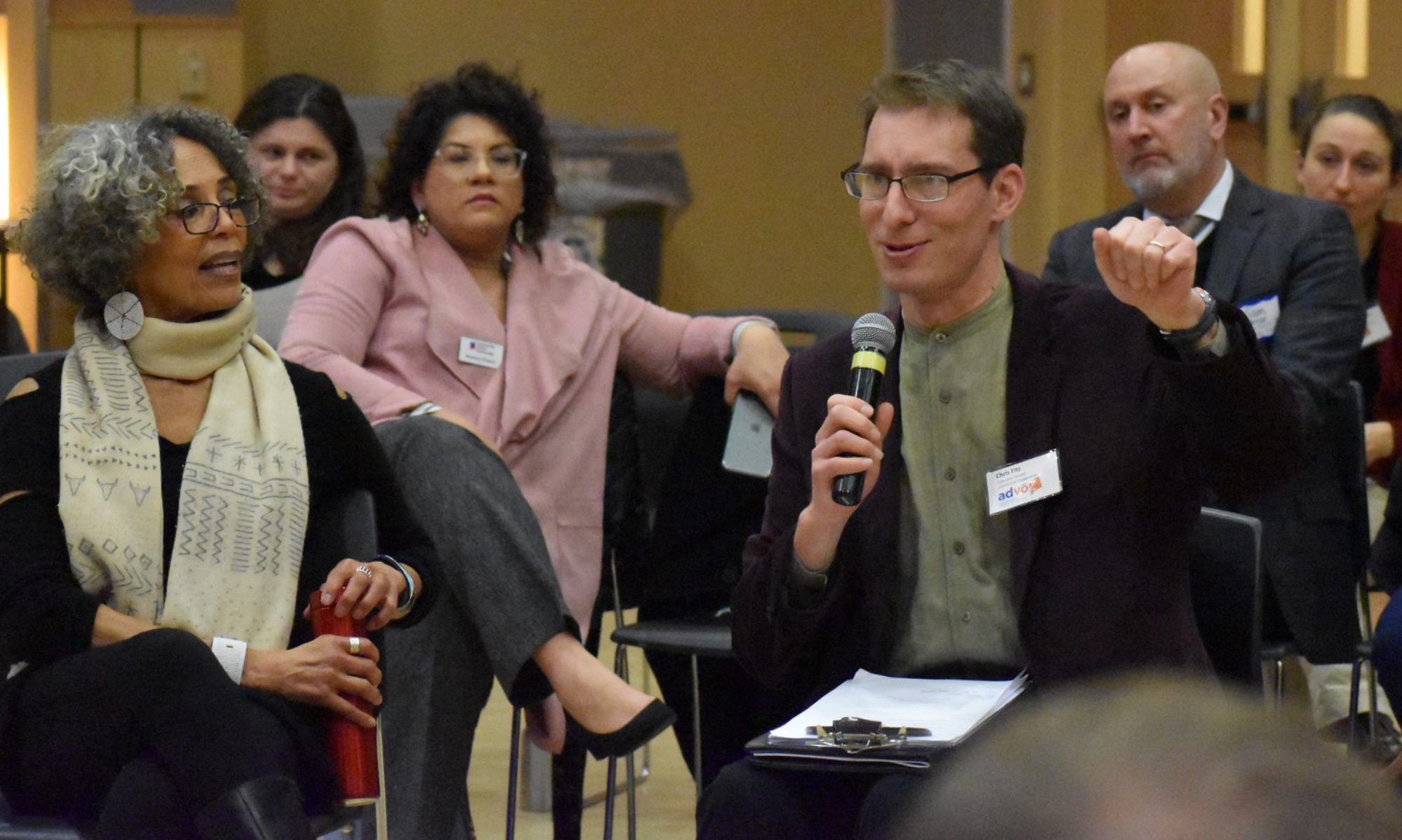Originally published as “Mediation Mindset…” Jan. 27, 2019 in Lancaster Newspaper (LNP).
“The shift” is often imperceptible in mediation. What starts out as a heated and contentious business negotiation suddenly turns to a rational exchange with voices even and tempers cooled. Soon after, folks in the room are finding their own way toward an agreement, generating their own solutions, testing them and finding resolution.
It’s a process we see every week at Advoz, a Lancaster nonprofit that offers mediation and restorative justice services. And it’s a process for which we can see a real need in our current national political struggle.
But how do we get there? How can we make the shift happen in America?
President Donald Trump announced Friday afternoon that a deal had been reached to reopen the federal government. The partial federal government shutdown had lasted 35 days — the longest in U.S. history. Congress and the White House now have until Feb. 15 to negotiate a deal involving the thorny issues of immigration and border security. As a mediator, I see this as a clear opportunity.
The pain of the shutdown was not felt equally. The pain of federal workers, contractors and their families is what we honor in asking the question: How can we, the American people, help to avoid another such impasse?
It would be easy to suggest mediation tools for lawmakers to find common ground and make the big “shift” happen. But the opportunity before us is not just a political one, it’s a cultural one. If we citizens can’t talk to our neighbors about divisive issues, how can we expect our representatives to do that?
So what follows are a few ideas, many of which were articulated in the best-selling book, “Getting to Yes” (Fisher & Ury, 1981), for how to approach the current moment as an opportunity — for our elected representatives and for ourselves:
- Separate the person from the problem: What do you deeply want in our national political debate? What does that look like in your life, day to day? How can you talk about that in terms of your own story (rather than blaming or comparing)? What does your neighbor, your representative deeply want for themselves and our shared community? Can you ask them?
- Explore underlying interests and needs below publicly stated positions: Your neighbor may say they want “border security” or “border freedom” but there may be deeper interests. What might they be for you? For your neighbor? Can you ask your neighbor about his or her deep needs and concerns? Can you model courageous vulnerability to share your needs and concerns? Can you listen without judging, advising and assuming, and stay curious?
- Make an offer: As you struggle in a difficult conversation, you might find an opportunity to contribute something constructive. The shift happens, in part, because one person has the courage to recognize or appreciate the other, to create or suggest something new, to contribute positively despite feeling threatened.
- Perhaps ask: “I wonder what it would like if our kids … .”
What can you offer to move the situation forward one step? Voicing this once is not a guarantee, but it is at times a surprising antidote to a cycle of critical one-upmanship, blame and defensiveness.
Conversation starters
Need a few one-liners? These could be used in many conflictive situations — or with your elected representatives — to shift a conversation toward breakthrough:
- “How were you personally affected by the government shutdown?”
- “Could you tell me more about that?”
- “What do you hope for our community and our country?”
- “What values do you think that we share as a community? As a country, even across party lines?”
- “Could you imagine a positive path forward toward our shared values?”
- “What can you offer to move this situation forward just one step?”
- “Here’s what I can offer.”
Finding common ground
In 1995, I landed in Northern Ireland to study what had been a 25-year run of seemingly endless violence, division, discrimination and political impasse among the Roman Catholics and Protestants there.
But working amid the din of bombings and political bombast were Catholic and Protestant clergy, lay leaders and politicians in quiet conversations with paramilitary leaders. Those secret conversations, some lasting nearly 10 years, led to a permanent ceasefire of the major paramilitary organizations, followed by a long series of political discussions and agreements. Everyone I met on the street seemed to still be in a state of disbelief, asking the question, “How could such a shift just suddenly happen?”
As members of the greater Lancaster County community, it’s easy to feel overwhelmed, helpless and disempowered in the face of seemingly intractable national conflicts. But we live in a diverse community right next to people who share very different positions with equally passionate conviction.
In our own backyard, we have an opportunity to apply the lessons of mediation, to find our own common ground through quiet conversation. If we can do that, we can join Northern Ireland and hundreds of other unsung peace processes around the world, leading our representatives to sit down — out of the glare of media cameras — and look each other in the eye, and hear each other in a new way.
That’s the kind of leadership that can make America’s big shift happen, not just in the weeks ahead, but during the many inevitable challenges — and opportunities — to come.

Christopher Fitz is executive director of community engagement at Lancaster-based Advoz: Mediation & Restorative Practices, which was created by the merger of Conflict Resolution Services and the Center for Community Peacemaking. Mila Pilz, executive director of program operations at Advoz, contributed to this column.
This article appeared on the Lancaster Newspaper Op-Ed section on January 27, 2019.


